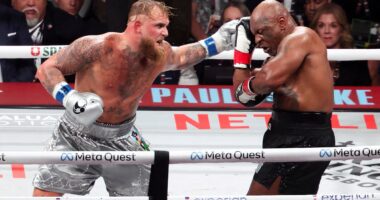Editor’s note: This is the latest story in an occasional series about former professional baseball players living in the suburbs. Jack Perconte’s Major League Baseball debut was an inauspicious one. After four years in the Los Angeles Dodgers organization, the second baseman was called up to the big club late in the 1980 season. One Saturday afternoon in mid-September, Perconte entered a game in Cincinnati against the Reds as a pinch runner. “The Reds still had many players who were part of the Big Red Machine,” Perconte — now a Lisle resident — recalled, referring to the powerhouse team that dominated the National League and won two World Series in the 1970s. “I was very nervous.” Perconte didn’t score that inning or get an at-bat during the game, which the Dodgers won 3-2. But he must’ve made an impression, because more playing time followed that season, en route to seven years in the Show. Now nearly 70, Perconte remains involved in athletics as a hitting coach for young baseball and softball players. He also has written five books about sports, the latest of which — “365 Peak Sports Mentality Quotes: Daily Winning Words of Wisdom” — was published in April.
A second call-up A graduate of Murray State University, the Joliet-born Perconte was drafted in the 16th round by the Dodgers in 1976. After that pinch-running appearance against the Reds, he finished the 1980 season with the Dodgers but spent most of 1981 back in the minors. Perconte returned to the Dodgers in September and helped the team get to the World Series, where they beat the New York Yankees in six games. Perconte didn’t play in the Fall Classic but still received a championship ring and a replica Commissioner’s Trophy from the Dodgers. While the ring is locked away in a safe-deposit box, Perconte displays the trophy at home. “They took care of us,” Perconte said. That off-season, though, Perconte was traded with future Cubs pitcher Rick Sutcliffe to the Cleveland Indians. He went on to play for the Seattle Mariners and the Chicago White Sox and back in the Dodgers minor-league system before retiring in 1987. “At age 33 and with a family, I knew it was time,” said Perconte, who has three grown children with his wife, Linda.
Finding happiness in coaching With his playing days over, Perconte opened a baseball and softball academy in Naperville and ran it for 19 years. He sold the business in 2006 but continues to coach independently. Perconte said helping kids become better hitters is fulfilling. “I consider myself a coach first,” he said. “My books are just an extension of coaching.” Those books include a hitting manual, a guide for parents navigating the potential pitfalls of youth sports and a handbook for coaches. Perconte wrote for the now-defunct Baseball the Magazine, too. Perconte said he hopes his latest book, “365 Peak Sports Mentality Quotes,” helps athletes develop mental strength. It features the words of pro football Hall of Famer Tony Dorsett, soccer legend Mia Hamm and many more, along with Perconte’s own wisdom. “I was not mentally strong when I played professional baseball, so the quotes are things I wish I had then to help me tackle each day a little better,” Perconte explained. “The quotes will help today’s athletes be better prepared than I was.” One of Perconte’s earlier books was about marathon running, a hobby he took up to channel his energy after selling the baseball academy. Titled “The Success Trail: Learn to Win with a Marathon Runner’s Mindset,” it’s a memoir designed to help athletes push themselves and reach their potential. Perconte still enjoys running. He’s completed 17 marathons and plans to run the Detroit Free Press Marathon in October. “Fortunately, my body has held up,” he said. “I hope to continue until it doesn’t.” Nearly 37 years after last playing pro ball, Perconte still receives fan mail and autograph requests, about one a day. He’s surprised the letters keep coming but responds to every one. “I am super proud to have made the major leagues,” Perconte said. “Looking back, I feel I could have been so much better and handled some situations better, but it’s all good. (They’re) learning experiences for life after the game.”





